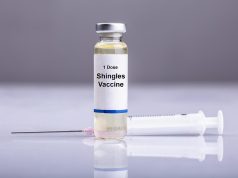Nirsevimab associated with lower odds of RSV-related hospitalization, ICU admission, lower respiratory tract infection incidence
By Elana Gotkine HealthDay Reporter
THURSDAY, May 8, 2025 (HealthDay News) — Nirsevimab is effective for reducing the burden of respiratory syncytial virus (RSV) in infants in real-world settings, according to a study published online May 1 in The Lancet Child & Adolescent Health.
Dewan Md. Sumsuzzman, Ph.D., from York University in Toronto, and colleagues conducted a systematic review and meta-analysis to examine real-world effectiveness of nirsevimab in populations where infant immunization programs were introduced. The systematic review included 32 cohort and case-control studies of immunization programs for infants aged 2 years or younger in routine clinical practice from five countries; the meta-analysis included 27 of these studies.
The researchers found that for infants aged 0 to 12 months, nirsevimab was associated with lower odds of RSV-related hospitalization, lower odds of intensive care unit admission, and lower odds of lower respiratory tract infection incidence (odds ratios, 0.17, 0.19, and 0.25, respectively). There was no difference between the nirsevimab and control groups in the length of hospital stay.
“Our findings support the use of nirsevimab as a key intervention for preventing RSV disease and severe outcomes among infants,” the authors write.
Several authors disclosed ties to the pharmaceutical industry.
Copyright © 2025 HealthDay. All rights reserved.








